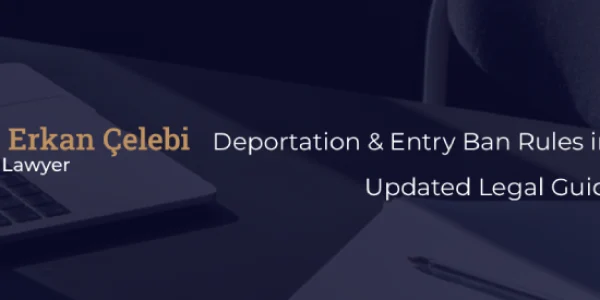Introduction
August 2025 saw the Turkish Ministry of Justice promulgate the Draft Compulsory Enforcement Code to repeal the long-standing Enforcement and Bankruptcy Law (No. 2004). It has been subject to public debate until 31 January 2026 and has not yet come into force. Nonetheless, such reforms will have a material effect on overseas business and foreign investors regarding debt collection, asset enforcement, and insolvency processes in Turkey.
Table of Contents
What Is Compulsory Enforcement Code Draft?
Draft is a large-scale reform package designed to put Turkey’s enforcement and insolvency regime in the digital age. It reconfigures the structure of enforcement office agencies, establishes digitisation programs, and outlines new appeal procedure rules. The Ministry of Justice has put out a call for stakeholders to comment prior to the bill going to a vote in Turkey’s Parliament.
What Are the Key Proposed Amendments?
Appeals and Enforcement Continuity
Filing appeal (istinaf) will not cease enforcement automatically, apart from sales of assets.
Appeals to Court of Cassation (temyiz) will not suspend sales unless security to the amount of 15% of debt is given by debtor.
Online Sales and Electronic Auctions
Most public auctions will be transacted electronically.
Last-minute bids will prolong the auctioning process by three minutes in order to provide equal chances.
If any technical flaws happen then this sale can be extended maximum until a day.
Auto-Tuning Trims
Yearly revised simplified procedure monetary limits will be updated in accordance with revaluation rate to make it consistent with inflation.
Online Announcements and Transparency
Announcements and enforcement notices will be accessible upon a national electronic portal that will be linked to UYAP (the court’s digital system).
Digital Insolvency Meetings
Creditors’ meetings during insolvency proceedings can be done virtually, ensuring minimal procedural delays.
Frequently Asked Questions
No. It remains a draft open to public consultation until 31 January 2026. It still has to pass through Parliament to become law.
If a debtor wishes to prevent selling assets while on appeal, then he will be required to provide security in the amount of 15% of debt. It gives creditors more protection.
Yes. It makes electronic auctions a priority such that electronic auctions become the leading electronic bidding methodology.
Enforcement procedures impact debt collection and protection of assets directly. Reforms bring faster, clearer, and more predictable procedures.
By consulting with specialised lawyers, updating contractual enforcement clauses, and following Ministry of Justice updates.
How Could This Impact Foreign Investors?
Quicker and More Open Enforcement
Online auctions and electronic notices aim at generating a transparent, accessible, and efficient process of sale of assets to enable easy tracking of the process among overseas investors.
Predictable Risk Management
Application of a 15% deposit upon cessation of sales in appeals allows creditors a higher degree of predictability, facilitating better foreign firm recovery planning.
Modernisation of Insolvency Procedures
It might help to reduce administrative burdens and wait times, both potentially especially valuable to multinational firms confronted with cross-border insolvency actions.
Inflation-Linked
Frequent increases to monetary levels keep enforcement actions up to date and realistic, reducing uncertainty caused by inflation.
What Should Investors and Foreign Clients Do Now?
- Monitor developments closely: It’s not law yet but will be changing in 2026.
- Review of contracts and risk policies: Collection and enforcement clauses might need to be revised in light of proposed rules.
- Get legal counsel: Having a trained Turkish lawyer ensures compliance and risk mitigation during the transition process.
- Participate in consultation: Foreign stakeholders can submit opinions to the Ministry of Justice before finalising the draft.
Conclusion
Compulsory Enforcement Code Draft (2025) is a notable step toward centralising and digitalising Turkey’s enforcement system. Whilst still not having come into effect, foreign investors should plan ahead for these reforms because they can potentially revolutionise debt collection and asset recovery in the country. Obtaining advice and representation from a reputable Turkish law firm can provide wished-for direction to navigate this changing legal landscape.
- Author Av. Baris Erkan Celebi
- Barış Erkan Çelebi Founder of Turkish law firm
Contact Form
Baris Erkan Celebi is an English-speaking Turkish lawyer who exclusively represents foreign investors in Turkey. His law firm in Turkey specializes in providing international investors in Turkey with reliable legal counsel and personalized business solutions.







